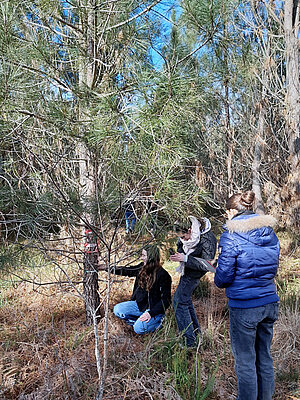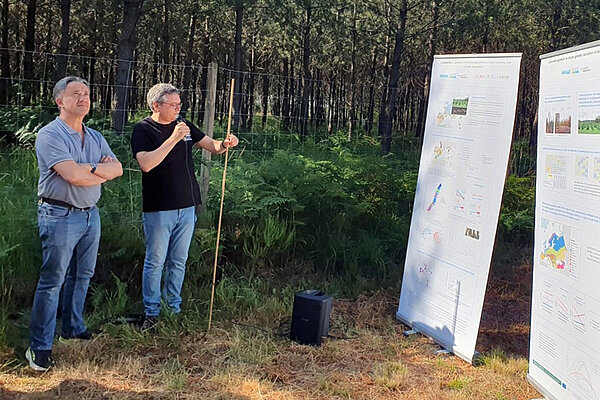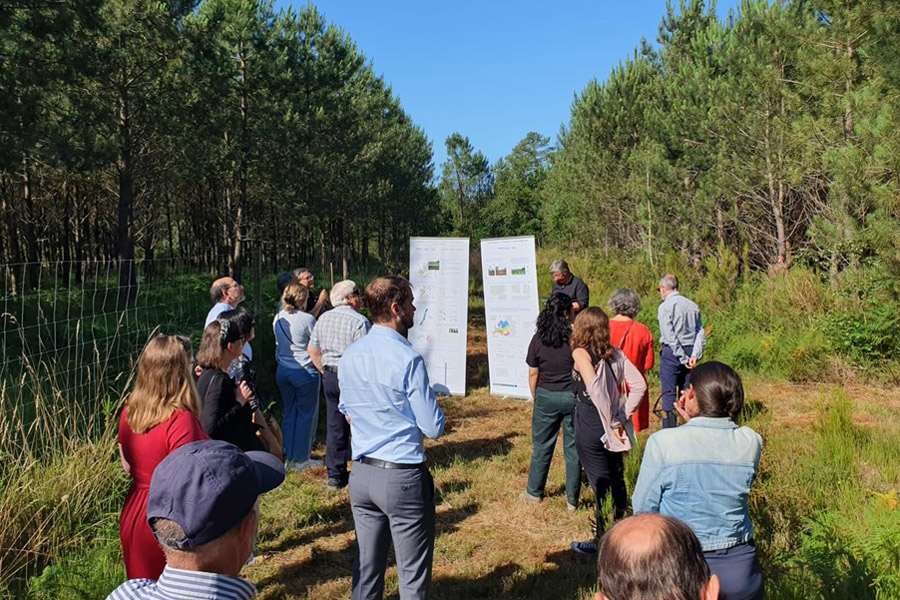The CLONAPIN common garden network is a unique scientific resource designed to study climate adaptation in maritime pine (Pinus pinaster Aiton). It was established through a collaboration between INIA-CSIC/CETEMAS (Spain) and INRAE (France), both partners in the OptFORESTS project. The network comprises five clonal common gardens located across Spain, France, and Portugal. These gardens are central to OptFORESTS activities. In Work Package 2 (WP2), they provide valuable data for climate adaptation modelling, while in Work Package 4 (WP4), they are used to assess the impact of genetic mixtures on forest productivity. Beyond research, the gardens also serve educational and outreach purposes, demonstrating their practical importance in helping us anticipate tree responses to future climates.

At the Pierroton common garden site near Bordeaux in France, we have developed dedicated communication and training materials related to CLONAPIN. This site regularly hosts visits from primary and secondary school pupils, who learn about the role of genetics by observing differences in height among provenances from Mimizan (France), Coca (central Spain), and Tamrabta (Morocco).
These real-world examples help illustrate how genetic origin influences growth in a shared environment. Students are also introduced to the remarkable adaptations of maritime pine across its range, particularly those related to fire regimes.
The Pierroton site also welcomes university students, including international visitors from institutions such as Laval University in Canada. More recently, it was featured during a visit by delegates attending the Tetrapartite Talks, a high-level dialogue on agricultural research and policy involving Canada, France, the United Kingdom, and the United States.
The visit highlighted the strategic value of modern common garden networks in fostering international cooperation in climate-resilient forestry.

